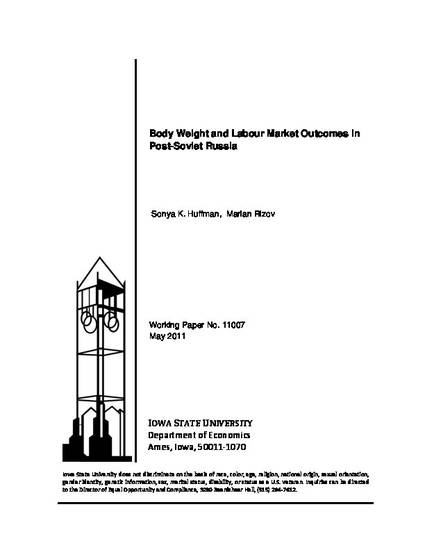
Purpose – The purpose of this paper is to focus on the impacts of overweight and obesity on the probability of employment, wages, and the incidence of sick-leave days by gender, in Russia, over the transition period, 1994-2005. Design/methodology/approach – The authors uses panel data and appropriate instrumental variables techniques to estimate a set of three models.Findings – The results show a linear negative effect of body mass index (BMI) on probability of employment for women and positive effect for men. The authors did not find evidence of wage penalty for higher BMI, a result different from findings of several studies on developed market economies. There is also positive impact of BMI on the number of work days missed due to health problems for women. Originality/value – The results derived in transition context add evidence to the growing obesity and labour market outcomes literature emphasising the relative importance of the labour supply side compared to the demand side. The policy implications of our study are gender specific.
Available at: http://works.bepress.com/sonya-huffman/23/

This is a working paper of an article from International Journal of Manpower 35 (2014): 671, doi: 10.1108/IJM-01-2013-0009.